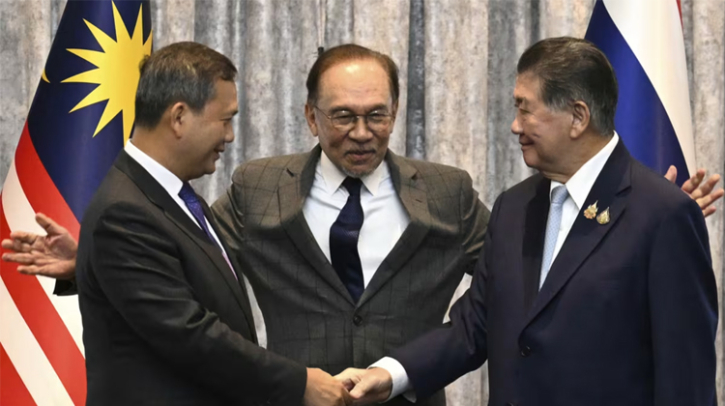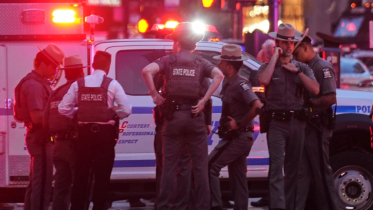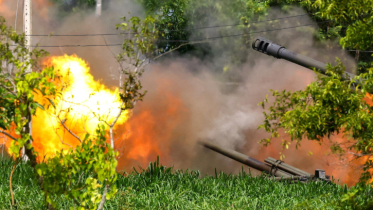Thailand and Cambodia Seek Stability Amid Fragile Ceasefire Agreement

Published : 00:20, 30 July 2025
In the wake of recent hostilities along their shared border, Thailand and Cambodia have reached a tentative ceasefire agreement aimed at halting five days of intense armed conflict that resulted in 38 fatalities and the displacement of hundreds of thousands. The accord, brokered in Malaysia on Monday with support from regional and international stakeholders including the United States and China, represents the most severe outbreak of violence between the two nations in over a decade.
Despite the formal commitment to peace, tensions remain high following accusations by the Thai military that Cambodian forces violated the ceasefire shortly after it was enacted. According to Thai military spokesperson Maj. Gen. Winthai Suvaree, Cambodia, launched attacks on multiple Thai territories during the night, actions he described as a "deliberate violation" intended to erode mutual trust. In contrast, the Cambodian Ministry of Defence categorically denied the allegations, asserting that its armed forces had adhered strictly to the terms of the ceasefire.
In an effort to quell public anxiety, Thailand’s acting Prime Minister Phumtham Wechayachai emphasized on Tuesday that there had been "no escalation" in hostilities, stating that "right now things are calm." His comments come amid increasing domestic and international pressure for both countries to de-escalate the situation and avoid further armed engagement. Notably, U.S. President Donald Trump threatened a suspension of trade negotiations and warned of the imposition of a 36% tariff starting August 1 if the violence persisted.
During a bilateral meeting between Thai and Cambodian military commanders held on Tuesday, both parties reaffirmed their commitment to the ceasefire. The agreement included several key measures: the immediate cessation of hostilities, a ban on the use of force against civilians, restrictions on military movement, facilitation of repatriation efforts for the injured and deceased, and the establishment of a local coordination mechanism to prevent future misunderstandings.
Cambodian Prime Minister Hun Manet also expressed optimism, stating that the situation on the frontlines had stabilized since the midnight implementation of the ceasefire. He voiced confidence that the agreement would create conditions favorable for the return of displaced civilians and the restoration of bilateral trust and cooperation.
While the ceasefire was hailed by Malaysian Prime Minister Anwar Ibrahim as "a vital first step towards de-escalation and the restoration of peace and security," Thai authorities remain cautious. They have advised evacuees not to return to border areas until further notice, citing ongoing uncertainty. Meanwhile, on-the-ground reports from Samraong in Cambodia indicated a cessation of explosions shortly before the ceasefire took effect, suggesting at least partial adherence to the agreement.
Looking ahead, a cross-border committee is set to convene in Cambodia on August 4 to further address tensions and implement confidence-building measures. The United Nations has also called on both nations to fully honor the agreement and foster a sustainable peace through continued dialogue and cooperation.
Source: Reuters, The Guardian, AP News











